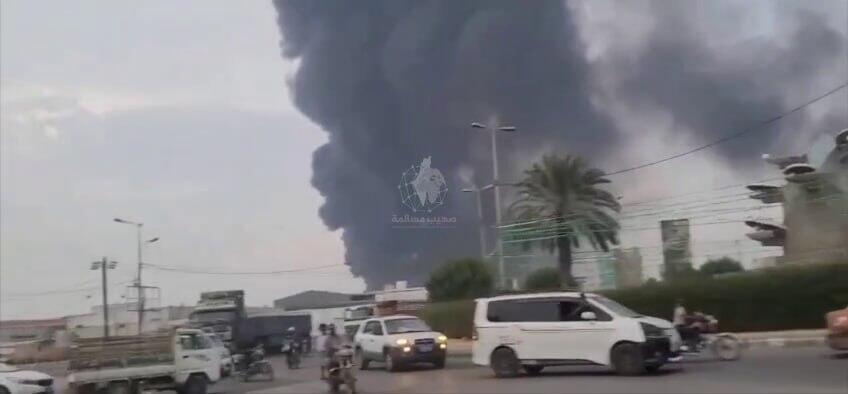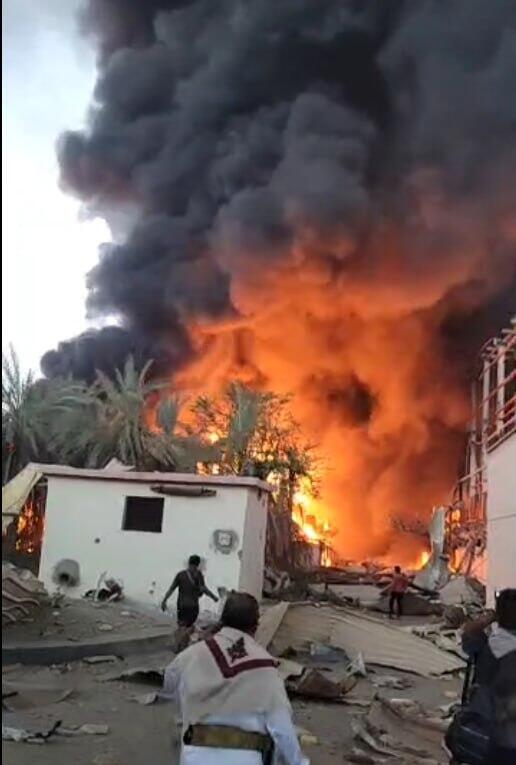Getting your Trinity Audio player ready...
Heavy plumes of smoke over Hodeidah port, Yemen
The IDF said it carried out a large-scale aerial operation on Sunday, striking what it described as "Houthi-controlled military targets in Yemen," about 1,800 kilometers (1,120 miles) from Israel's border.
"The airstrikes focused on key military infrastructure in the Ras Issa and Hodeidah regions, including power stations and a port used for importing oil. These facilities were being used by the Iranian-backed Houthi regime to transfer weapons and military supplies, including oil, to their forces," a statement read.
According to the army, dozens of aircraft, including fighter jets, tankers and reconnaissance planes, participated in the operation, which was directed by the Military Intelligence Directorate.
The IDF said the operation was in direct retaliation for recent Houthi missile attacks on Israel. Over the past year, the Houthi regime has intensified its activities against Israel, working closely with Iranian militias in Iraq to destabilize the region and disrupt global shipping routes.
Heavy plumes of smoke over Hodeidah port, Yemen
The IDF affirmed its resolve to strike any threats to Israeli citizens, regardless of the distance.
Hezbollah-affiliated Lebanese network Al Mayadeen reported that more than 10 airstrikes targeted the port, causing significant explosions that "shook the city." Yemeni sources added that "Israel destroyed what remained of the oil tanks at Hodeidah port" and also struck the city's international airport.
A senior Israeli official said that the attack was coordinated with the United States before conducting the airstrike in Yemen. Al Mayadeen reported that an American source said the U.S. "gave the green light to the enemy and must bear the consequences."
The incident follows a recent spike in missile activity from Yemen, where just Saturday night, a surface-to-surface missile was fired toward Israel, triggering air raid sirens across several regions. The missile was successfully intercepted outside Israeli territory.
An Israeli official explained that the goal of the strike was to impose a heavy toll on the Houthis for their attacks on Israel. "If they continue targeting Israel, the strikes will intensify," the official warned. He added that the message to Iran was clear, emphasizing that "Israel can strike powerfully even 2,000 kilometers away and simultaneously across multiple fronts. Today, we struck in Gaza, Lebanon, Syria and Yemen."
The official further said that the damage inflicted on the Houthis was substantial and would take them a long time to recover.
This latest missile was the second launched by the Iranian-backed Houthi rebels in the past three days, adding to growing tensions.
Earlier this month, the Houthis fired a missile at Israel, partially intercepted near Ben Gurion Airport, raising concerns over Israeli deterrence.
Israel struck the Hodeidah port in July following a deadly drone strike in Tel Aviv—claimed by the Houthis. The drone attack at the time killed one person and injured 10 others.









